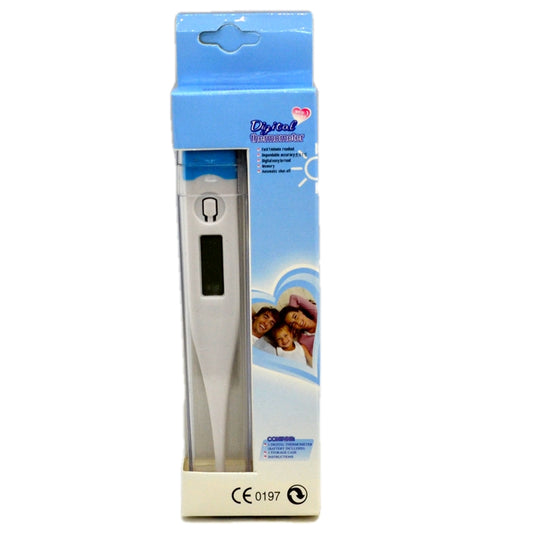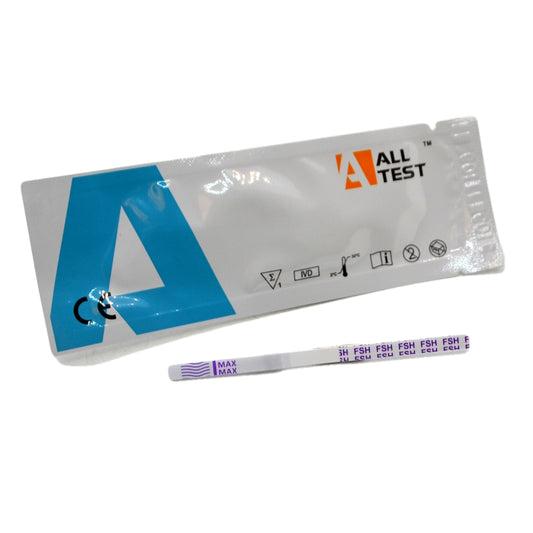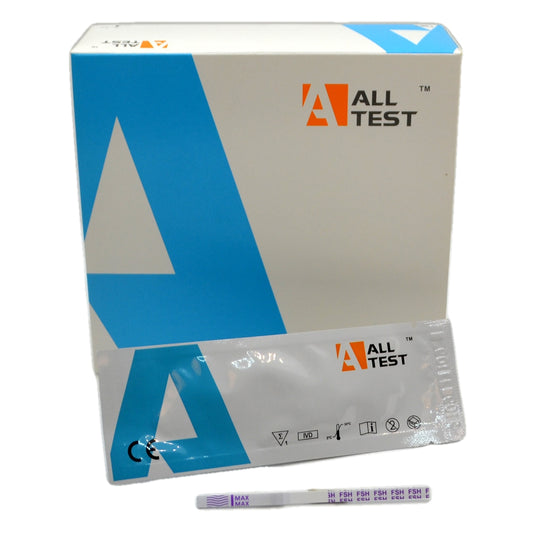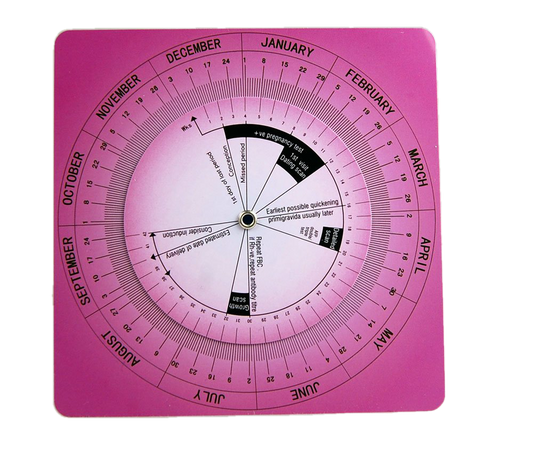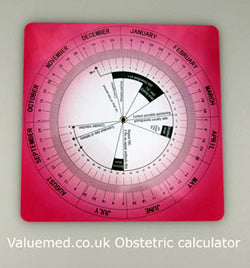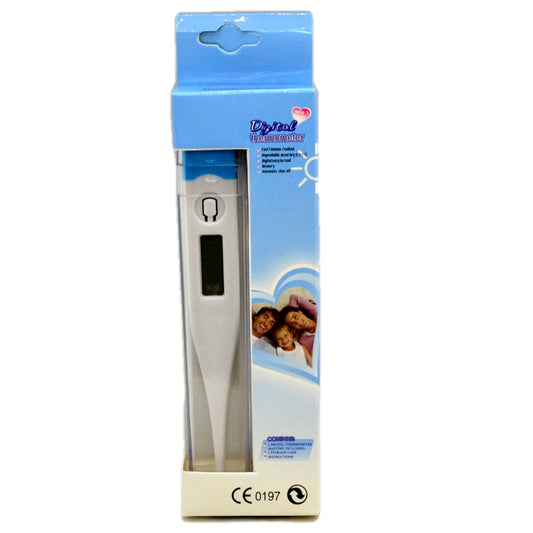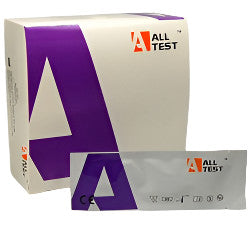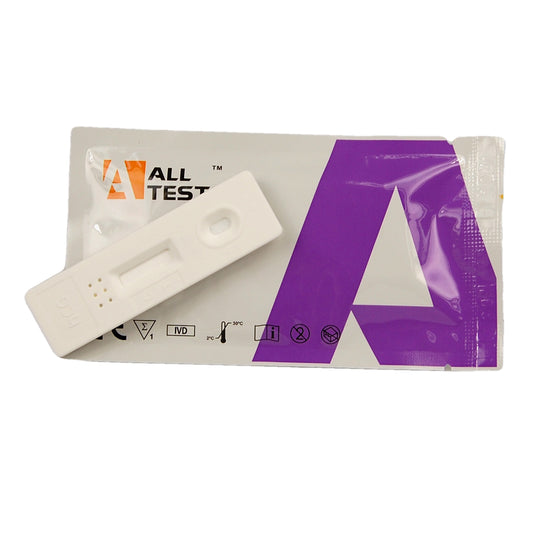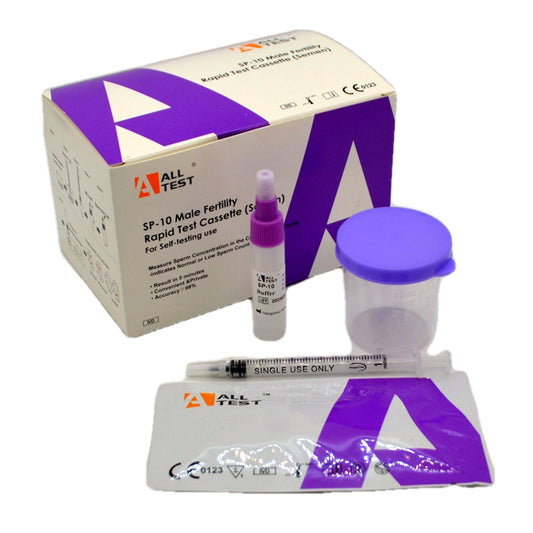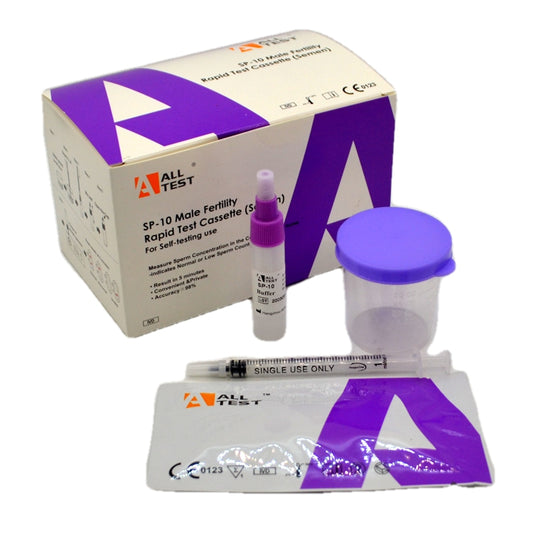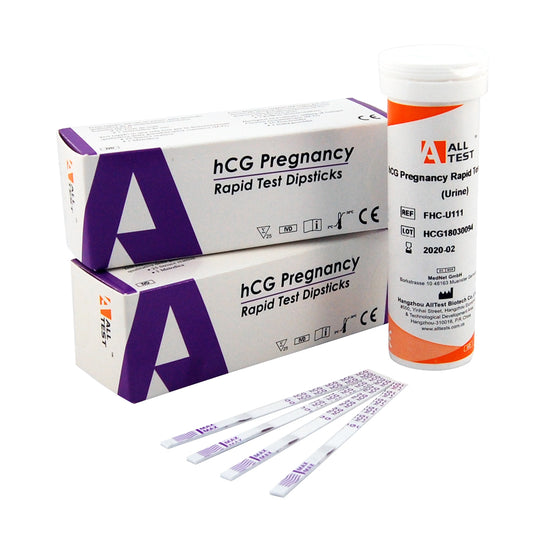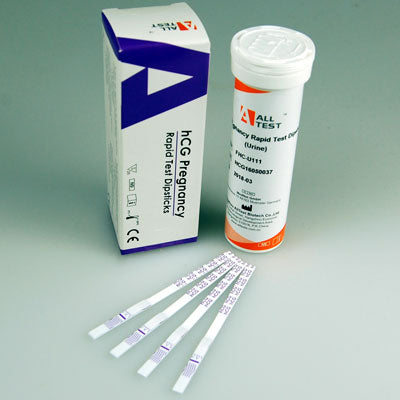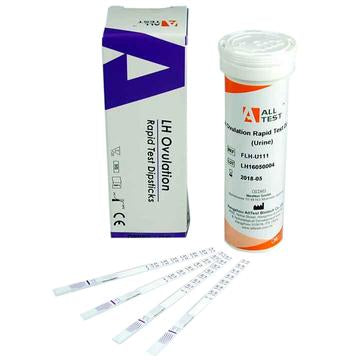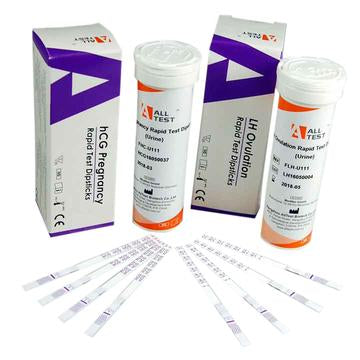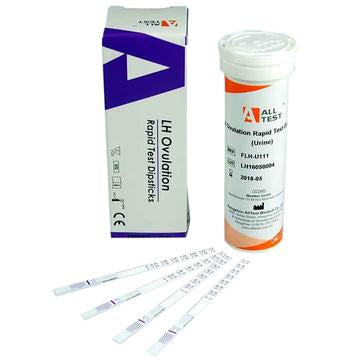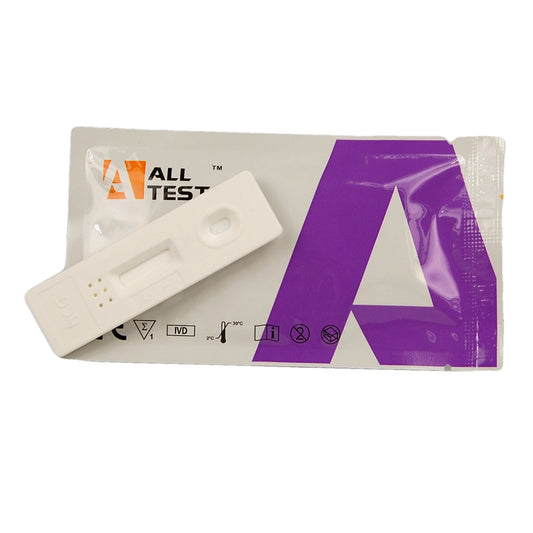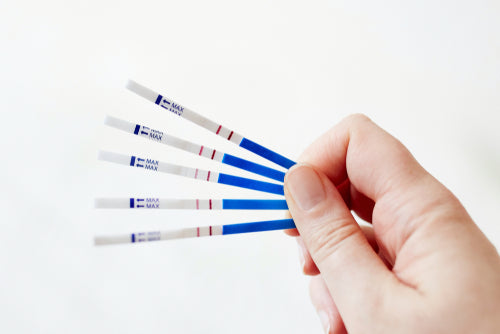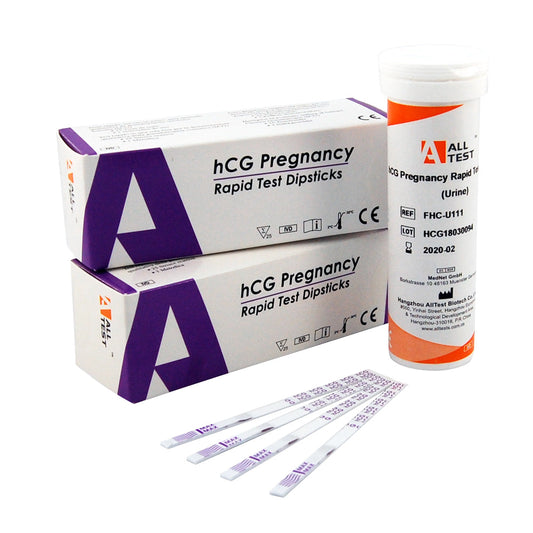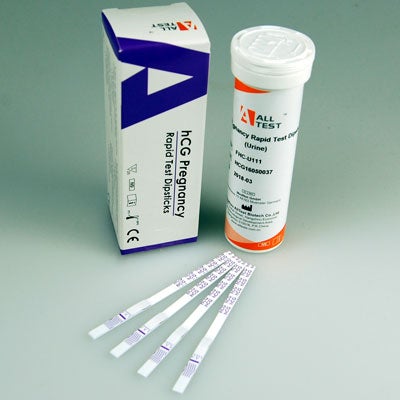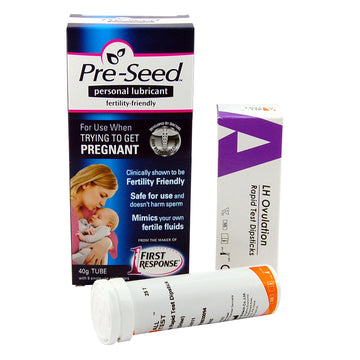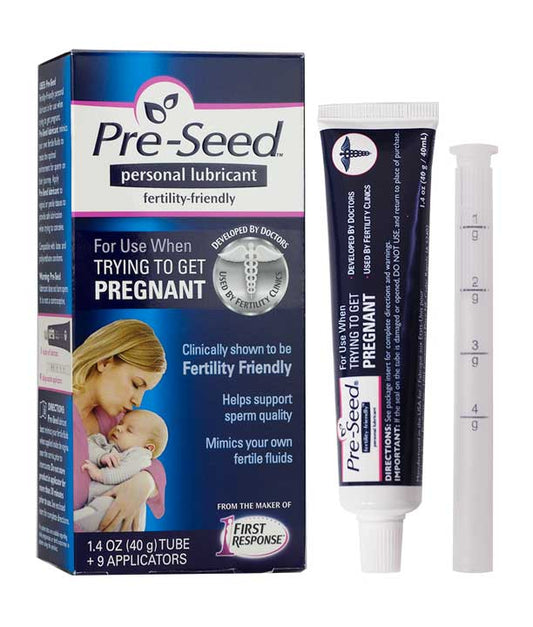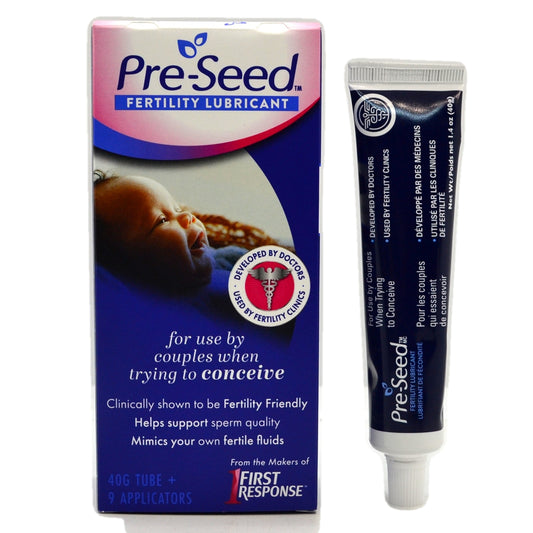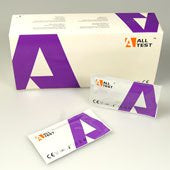Collection: Fertility Products
-
Digital Thermometer
No reviewsRegular price £4.99 GBPRegular priceUnit price / per -
ALLTEST Menopause And Perimenopause Test Kit Special Offer EXP 04/2026
No reviewsRegular price From £2.95 GBPRegular priceUnit price / per -
Obstetric Calculator
No reviewsRegular price £4.99 GBPRegular priceUnit price / per -
Wholesale Digital Thermometer
No reviewsRegular price £460.00 GBPRegular priceUnit price / per -
ALLTEST Professional Pregnancy Test Strips FHC-U101 10mIU Ultra Early Pregnancy Test Strip Pack Of 50
1 reviewRegular price From £4.99 GBPRegular priceUnit price / per -
ALLTEST Professional Pregnancy Test Cassettes 10mIU Ultra Early Pregnancy Test Kits Pack Of 40
No reviewsRegular price From £13.75 GBPRegular priceUnit price / per -
Tired All The Time Chronic Fatigue Test Kits
No reviewsRegular price £15.99 GBPRegular priceUnit price / per -
Wholesale ALLTEST 10mIU Ultra Pregnancy Test Cassettes
No reviewsRegular price £255.00 GBPRegular priceUnit price / per -
ALLTEST SP10 Home Male Fertility Test Kit
2 reviewsRegular price From £7.99 GBPRegular priceUnit price / per -
Wholesale ALLTEST FHC-U101 10mIU Ultra Pregnancy Test Strips
No reviewsRegular price £239.96 GBPRegular priceUnit price / per -
Wholesale ALLTEST SP10 Male Fertility Test Kit
No reviewsRegular price £303.27 GBPRegular priceUnit price / per -
ALLTEST Professional Pregnancy Test Strips FHC-U111 10mIU Ultra Early Pregnancy Test Pot of 25
1 reviewRegular price From £3.25 GBPRegular priceUnit price / per -
ALLTEST 25mIU Ovulation Test Strips FLH-U111 (pot of 25 ovulation strips)
1 reviewRegular price From £4.95 GBPRegular priceUnit price / per -
ALLTEST 10mIU Ultra Pregnancy Test Strips plus ALLTEST 25mIU Ovulation Test Strips
No reviewsRegular price £9.90 GBPRegular priceUnit price / per -
Wholesale ALLTEST 25mIU Ovulation Test Strips FLH-U111 (vial of 25)
No reviewsRegular price £203.50 GBPRegular priceUnit price / per -
Wholesale ALLTEST 25mIU Ovulation Test Strips
No reviewsRegular price From £310.00 GBPRegular priceUnit price / per -
ALLTEST Professional Pregnancy Test Cassettes 25mIU Pack Of 40
No reviewsRegular price £13.75 GBPRegular priceUnit price / per -
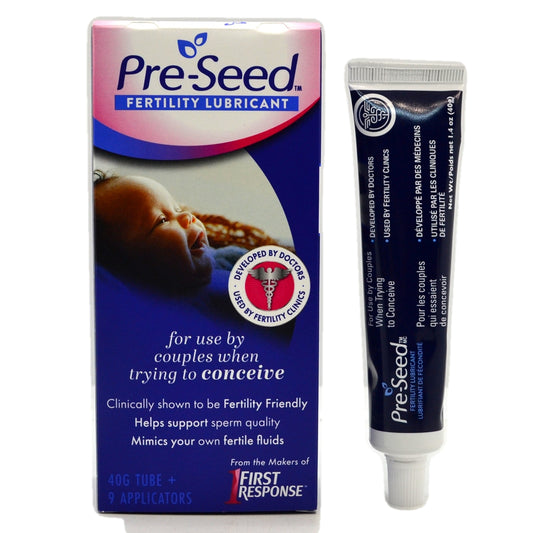
 Sold out
Sold outPre-Seed Fertility Lubricant
2 reviewsRegular price £19.99 GBPRegular priceUnit price / per -
Pre-Seed Lubricant Plus 5 Free Ultra Early Detection Pregnancy Test Strips
No reviewsRegular price £19.99 GBPRegular priceUnit price / per -

 Sold out
Sold outALLTEST 25mIU Ovulation Test Strips
No reviewsRegular price £7.95 GBPRegular priceUnit price / per -
Wholesale 10mIU Ultra Pregnancy Test Strips ALLTEST FHC-U111
No reviewsRegular price £357.00 GBPRegular priceUnit price / per -
PreSeed Lubricant Plus Ovulation Kit Pot Bundle
No reviewsRegular price £24.99 GBPRegular priceUnit price / per -
Wholesale Pre-Seed Fertility Lubricant
No reviewsRegular price £1,270.50 GBPRegular priceUnit price / per -
Wholesale ALLTEST 25mIU Early Pregnancy Test Cassettes (pre-order only)
No reviewsRegular price £255.00 GBPRegular priceUnit price / per
Fertility products and home fertility tests
Welcome to our collection of fertility products at ValueMed! Here you will find a range of high-quality products designed to help couples increase their chances of conceiving. We understand that trying to conceive can be a challenging and emotional journey for many couples. That's why we offer a wide selection of fertility products that have been carefully selected to provide you with the best possible chance of success. Our range includes ovulation tests, pregnancy tests, fertility test kits, and fertility friendly lubricants. We stock leading brands such as First Response, and Pre-Seed to ensure that you have access to the most trusted and reliable products on the market.
Ovulation tests are an essential tool for anyone trying to conceive. They help you identify the most fertile days of your menstrual cycle, allowing you to time intercourse more accurately. Our ovulation test strips are easy to use and provide accurate results in just a few minutes.
Pregnancy tests are another vital tool for couples trying to conceive. Our pregnancy test strips and cassettes are highly sensitive and can detect pregnancy hormones as early as six days before your missed period, providing you with peace of mind and allowing you to start planning for your new arrival.
Fertility lubricants, including Pre-Seed, are specially formulated to mimic the body's natural cervical mucus, which helps sperm travel more easily to the egg. These lubricants are designed to be pH-balanced and non-toxic, ensuring that they don't harm sperm or interfere with conception. Pre-Seed, in particular, is a popular fertility lubricant that has been clinically shown to be safe for use when trying to conceive. It provides optimal lubrication without hindering sperm motility. Fertility lubricants like Pre-Seed can be used in conjunction with other fertility products, such as ovulation tests and fertility supplements, to increase the chances of conception. They are an easy and affordable way to enhance your fertility and improve your chances of getting pregnant.
Home fertility test kits are a convenient and cost-effective way to monitor your fertility and increase your chances of conception. These tests allow you to track your identify any potential issues that may be affecting your fertility. They are easy to use and provide accurate results in the privacy of your own home. Home fertility test kits come in a variety of formats, including sperm count tests, and female fertility hormone tests. They are a valuable tool for anyone trying to conceive, providing you with the information and insight you need to optimize your chances of success. and can help you conceive more quickly. Our test kits are easy to use and come with detailed instructions to ensure that you get the most out of them.
At ValueMed, we are committed to providing our customers with the highest quality products at the most affordable prices. We understand that trying to conceive can be an expensive process, which is why we offer discounts on many of our fertility products. We also offer fast and reliable shipping, so you can start using your fertility products as soon as possible. If you have any questions or concerns about our products, our friendly customer service team is always on hand to help.
Thank you for choosing ValueMed for your fertility needs. We wish you the best of luck on your journey to parenthood!
Browse our range of fertility products, fertility tests, early detection pregnancy test strips, ovulation test strips and fertility lubricants including Pre-Seed
Collapsible content
What are the rules before sperm test?
Before undergoing a sperm test, also known as a semen analysis, individuals are typically advised to follow certain guidelines to ensure accurate and reliable results. While specific instructions may vary depending on the healthcare provider or laboratory, here are some general rules often recommended before a sperm test:
- Abstain from ejaculation: It's commonly recommended to abstain from ejaculation for a certain period before the sperm test, usually between 2 to 5 days. This abstinence helps in obtaining a representative sample for analysis.
- Avoid certain substances: Individuals are often advised to refrain from alcohol, tobacco, and recreational drugs in the days leading up to the test, as these substances can potentially affect sperm quality.
- Minimize stress: Stress can impact reproductive health, so it's advisable to try to minimise stress levels before the test.
- Maintain regular diet and exercise: A healthy lifestyle, including a balanced diet and regular exercise, can positively influence overall health, including reproductive health.
- Follow specific instructions: Patients should carefully follow any specific instructions provided by their doctor, fertility clinic or laboratory. This may include details about the collection process, storage, and transport of the sample.
- Inform about medications: If the individual is taking any medications or supplements, it's essential to inform the healthcare provider, as certain medications can affect sperm parameters.
What time of day is sperm count highest?
Sperm count can vary throughout the day, and there isn't a universal "best" time for everyone. However, many studies suggest that sperm counts tend to be higher in the early morning. This may be due to hormonal variations that influence sperm production.
In studies, semen samples collected between 5:00 am and 7:30 am from healthy individuals demonstrated a statistically significant increase in sperm concentration, total sperm count, and the percentage of normally shaped sperm compared to samples collected later in the day. The time of sample production did not impact sperm motility.
Keep in mind that individual factors, lifestyle, and health conditions can also play a role in sperm count.
Can sperm analysis be wrong?
The way the semen for the sperm analysis is collected and processed can play a major factor in the results. Time is of the essence; sperm cells start to die after about an hour, and their motility decreases.A too-cool or too-warm sample may also yield a false verdict of sub-standard sperm.
Can your wife or partner help with obtaining the sperm sample?
When a man is providing a semen specimen for analysis, a spouse or partner may assist with the collection. It's important to note that lubricants or saliva should not be used.
Are home male fertility tests accurate?
Most home male fertility test kits have an accuracy rate of approximately 95-97%, when compared to the outcomes obtained through the standard laboratory-based semen analysis testing, but their accuracy can vary. Some home tests measure sperm count, motility, and morphology, providing an indication of male fertility.
It's important to note a few key points when it comes to home male fertility test kits:
- Accuracy: Home fertility tests can provide a general assessment, but they may not be as accurate as male fertility tests conducted in a clinical setting. The precision of these home tests can be influenced by factors such as user error, sample collection, and the specific methodologies employed.
- Limited information: Home male fertility tests typically provide limited information compared to a comprehensive semen analysis conducted in a laboratory. A full semen analysis can assess various parameters beyond just sperm count, including motility and morphology.
- Changes over time: Male fertility can vary, and a single home fertility test may not capture the full picture. If there are concerns about fertility, it's advisable to conduct multiple tests over a period and seek guidance from a healthcare provider if you have concerns about your fertility or you are having difficulties conceiving.
Can a home male fertility test kit be used to check a vasectomy has worked?
Home male fertility tests are not typically designed to assess the success of a vasectomy. These tests are more commonly focused on assessing sperm count, motility, and morphology to provide a general indication of male fertility.
To determine if a vasectomy has been successful, a post-vasectomy semen analysis is usually performed by a lab. This analysis is conducted by a healthcare professional, and it involves examining a semen sample to check for the presence of sperm. It is essential to follow the specific guidelines provided by the healthcare provider regarding when and how to provide the sample for accurate results.
If you've undergone a vasectomy and are concerned about its success or wish to confirm its effectiveness, it's crucial to consult with your healthcare provider. They will guide you on the appropriate testing procedures and provide accurate information based on your individual case. Home fertility tests are not suitable or accurate enough for assessing enough for assessing the success of a vasectomy.
Why wait 3 days before sperm test?
The recommended period of abstinence before conducting a semen analysis is typically advised to be between 2 to 5 days. If the period of abstinence from ejaculation is too short, this may give a low sperm count reading. Allowing an excessively long interval between ejaculates may lead to a significant decrease in sperm motility.
What does a faint line on a the home sperm test kit mean?
If you are using an ALLTEST home sperm test kit with a cassette test device then a positive result is indicated by the presence of even a very faint test line. Conversely, a negative (Low) result is determined when a Control Line (marked as “C” on the device) is visible, but there is no Test Line (marked as “T” on the test device), indicating a sperm count below 15 million per milliliter.
How do you use a sperm test kit?
Using a home sperm test kit typically involves the following general steps, but it's important to carefully follow the specific instructions provided with the test kit, as different brands of test may have variations in procedures:
- Read the Instructions: Start by thoroughly reading the instructions that come with the home sperm test kit. Each kit may have specific guidelines and recommendations.
- Collect the sample: Most kits require the collection of a semen sample. This is often done through masturbation into a clean, dry container provided in the kit. Some kits may offer alternative methods for sample collection.
- Prepare the sample: Follow the instructions for preparing the collected semen sample. This may involve allowing the sample to liquefy for a specified period.
- Apply the sample to the test device: Use the provided tools or applicators to transfer the semen sample onto the designated area of the test device. This area typically contains reactive components that interact with the sperm.
- Wait for the test results: Allow the recommended amount of time for the test to develop. The time may vary between different brands of test. Results can vary, but they are often indicated by the appearance or absence of lines on the test device.
- Read the results: Interpret the results according to the instructions provided. Typically, the presence or absence of lines will indicate the sperm count or fertility status.
- Note any Controls: Most tests include a control line C to confirm that the test has been performed correctly. Make sure to check for the presence of this control line.
- Follow-Up: Depending on the results, the test kit instructions may provide guidance on the next steps. If you have concerns about the results or if you are actively trying to conceive, consider consulting with a healthcare professional for further guidance.

